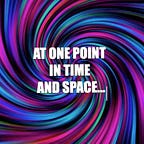Information filters
Personal and Social filters help to understand how people interact with information in general.
All information that we have ever learnt has been obtained from others or from personal experience. Indeed, the research in social psychology and neuroscience suggests that people pay special attention to information source.
People perceive information in two general ways — from personal and social perspectives. When we receive information from other people (or groups of people), we make assumptions about them, and only then about the delivered information. These assumptions include, e.g., how reliable (i.e., trustworthy) or attractive they are, whether they possess necessary expertise about what they communicate or how similar they are to us. To make these judgements people use information filtering process based on personal preference and experience when judging source of information.
Personal filter
Personal filter describes the idea that we tend to attend to engaging (e.g, emotional) information. Personal filter helps to understand what information is useful specifically for us. Think about how you feel when you read news about different issues — patriotic values, poverty or individual responsibility. Many topics are controversial, because they promote strong opinions in people with different personal preference and life experience — this feeling is personal information filter at work.
When we receive information, it is interpreted to fit our personal story.
Depending on what views we already hold and how strong they are, new information can be difficult to accept. When we learn uncomfortable information that attacks our identity (e.g., suggests an opposite political viewpoint) and evokes emotional response (e.g., the viewpoint is negatively charged), we feel threatened and try to defend our identity via defending our viewpoint. Personal filter thus directs attention to engaging information, which we feel personal attachment towards.
We tend to accept information from others who shares personal identity or values with us — a useful shortcut in a complex information flow. Consider this question: Is immigration beneficial to the global economy?* Issues like this are controversial because they are complex. This is because people become emotionally attached to what they consider “us vs. them” problem due to cultural or group beliefs. Personal filter is tightly interlinked with social filter, because no information is and no individual is floating in a vacuum.
Source filter
Source filter describes the idea that when others provide information they become social sources of information for receivers. To better understand what this is all about, here is a statement: culture and genes are interconnected*. You consider whether the social source is trustworthy enough to think about this statement as “truth”. You might accept this statement or not — but better always check from the primary and additional sources.
Social filter mirrors the personal filter. It helps to decide whether to be skeptical or fully open to the delivered information of other(s). This filter helps individuals to gather information from trustworthy and reliable sources. Depending on the source, we can be quick to accept received information and use it in personal decision-making, or we might not accept the information, because we distrust it.
Social filter thus can be viewed as a collection of specific viewpoints of other(s) who we trust.
Filter how?
The best learning strategy is to use social and personal learning interchangeably — e.g., doing personal media research and engaging in discussions. But, information is complex, how to navigate it? Trying to be friendly should is often enough:
- Identify values and motives of information source. To establish the validity and intention of delivered information ask yourself (or them): what are the values and motives in sharing this information with you?
- Take a step back (breath) and think how you feel when discussing some information. What we feel about some aspects of our identity may hold us back to have an open discussion.
- Be as impartial as you can. Even though it’s impossible to be completely impartial, however, the less personal you feel about information, the more clearly you can see the strengths and weaknesses of it.
- If impartiality does not come naturally, try to consider several perspectives of the issue. Think of a different (e.g, opposite) perspective — if you are a conservative discussing drug legalisation, think of liberal values of choice without being penalised for it. It is also useful to apply “global perspective” —what perspective would a random person on this planet have? Or is your perspective solely applicable to your personal life?
We all use information filters, and it’s great — we learn better when we are surrounded by other people. Next time you talk with others about a controversial topic, think of Editorial and Identity filter.
*What is the answer to the immigration question? A good way to start is to think about measures of surplus and cultural exchange.
**As genes affect our culture and traditions, the way culture is structured can also shape our genes.
Originally posted in Money on the Mind: https://www.moneyonthemind.org/blog/because-someone-said-so
